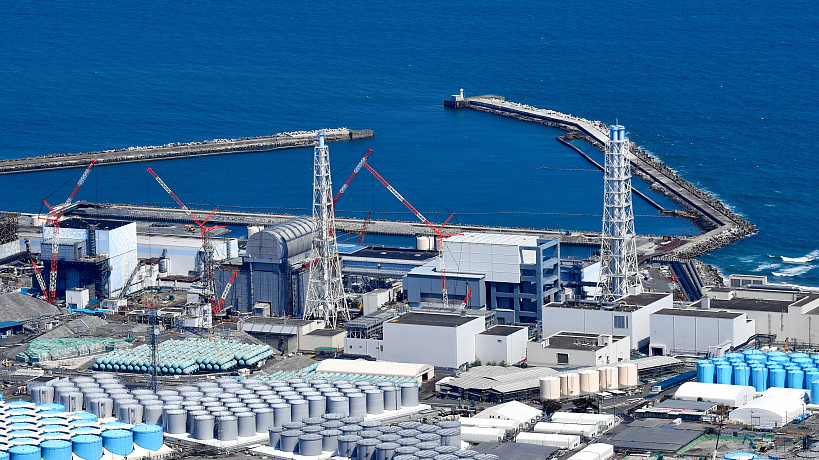
Fukushima Daiichi nuclear power plant, April 12, 2021. /CFP
Fukushima Daiichi nuclear power plant, April 12, 2021. /CFP
Japanese lawmakers rallied outside Japan’s House of Representatives on Tuesday to condemn the government's plan to discharge contaminated wastewater from the crippled Fukushima nuclear power plant into the sea, calling it a serious breach of contract with the public.
"Let us recall carefully that in 2015, the Japanese government and Tokyo Electric Power Company promised to Fukushima fishermen that they would not discharge without their consent. And the fishermen have been opposing it until now. Not only fishermen, but also residents of Fukushima Prefecture, Japanese people, and overseas countries are greatly opposed to it. Even so, the Japanese government still insists on arbitrarily deciding the nuclear-contaminated wastewater discharge plan, which is a breach of contract," Iwabuchi Tomo, senator in the House of Councillors, told protesters at the rally.
"The Japanese government previously stated that the implementation of the discharge plan was based on the consent of the local people, but they did not express their consent. Various other matters have not obtained the consent of the people and been discussed. I think the discharge of nuclear contaminated water containing a lot of radiation into the sea will become a very serious problem," Kontou Syoichi, a member of the House of Representatives, told a reporter.
Tomo told protesters that the discharge of nuclear-contaminated water from Fukushima into the ocean is being condemned internationally and the Japanese government should listen to international opinions and properly handle the issue.
"At a joint press conference after the G7 Ministers' Meeting on Climate, Energy and Environment, Japanese Economy, Trade and Industry Minister Yasutoshi Nishimura said these countries welcomed the discharge plan. But the German Minister for the Environment pointed out at the conference that Germany had not said a word to welcome the release of the contaminated water. So Yasutoshi Nishimura had to make an apology. Why is this? The voices against the discharge are so strong. The nuclear contaminated water should not be discharged into the sea. Instead, the nuclear contaminated water should be stored in storage tanks. We should collect solutions from the world to develop technology that can remove tritium. We should develop technologies that can solve the problem of nuclear-polluted water without discharging it into the sea," said Tomo.
Also on Tuesday, Japanese citizens who are opposed to the government’s plan submitted a petition to Japanese Prime Minister Fumio Kishida and the Speaker of the House of Representatives, demanding that the Japanese government stop the discharge of nuclear-contaminated water into the sea, disclose the types and contents of radioactive elements in the contaminated water, and come up with an alternative plan for the contaminated water as soon as possible.
(If you want to contribute and have specific expertise, please contact us at nature@cgtn.com.)